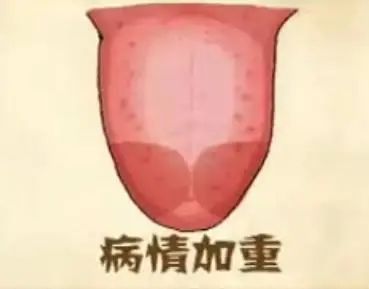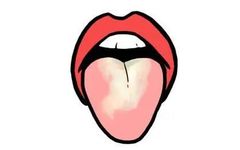Click the blue text above to follow「Shanxi Provincial Hospital of Traditional Chinese Medicine」
Endocrinology Department Gao Wenli
Many people notice a coating on their tongue when they brush their teeth in the morning. Sometimes it is white, sometimes yellow, sometimes thin, and sometimes thick. Most people try to scrape it off. So, can tongue coating be scraped? Is oral odor related to tongue coating?
/01/
What is Tongue Coating?

Tongue coating is part of our oral cavity, containing many taste bud tissues. In a healthy person, the tongue coating is generally thin and evenly spread across the tongue surface, slightly thicker in the middle and at the root. It consists of shed keratinized epithelium, saliva, bacteria, food debris, and exuded white blood cells. Under normal circumstances, due to chewing and swallowing actions, as well as the rinsing effect of saliva and food, the substances on the tongue surface are continuously cleared, resulting in only a thin white layer of tongue coating. When ill, reduced food intake or only consuming soft foods decreases chewing and tongue movement, or reduced saliva secretion can lead to a thicker tongue coating.
/02/
Understanding Tongue Coating in TCM

When we feel unwell and go to the doctor, we are often asked to open our mouths to examine the condition of our tongue. Changes in the tongue can reflect the health status of the body. In most cases, examining the tongue involves looking at the tongue coating. Do not underestimate this thin layer of coating; it can reveal much about the body’s health. In TCM diagnosis, a normal tongue appearance is: pale red tongue with thin white coating. TCM believes: the tongue is the sprout of the heart, and the tongue coating is generated by stomach qi. Since all organs derive qi from the stomach, changes in tongue coating can reflect the cold, heat, deficiency, and excess of the organs, as well as the nature and depth of pathogenic factors. It is truly a “barometer” of body health.
/03/
Can Tongue Coating Be Scraped?

Some people find their tongue coating quite thick in the morning while brushing their teeth, so they scrape it off with their hands, only to find that the scraped coating has a very foul odor. In fact, foul-smelling tongue coating is a type of halitosis, related to stomach heat, constipation, and excessive mental stress. To eliminate the odor from tongue coating, maintaining oral hygiene is essential; scraping the coating is not necessary.
We can choose simple methods to clean the tongue surface, but we must not use overly sharp objects to scrape it. Rinsing with salt water or mouthwash, or gently brushing the tongue surface with a soft-bristled brush is advisable. If a soft-bristled brush is unavailable, a specialized soft cloth for tongue cleaning can be used gently, but care must be taken not to apply too much pressure. In daily life, it is important to eat a variety of fruits, maintain a light diet, and ensure adequate sleep. However, if the color of the tongue coating is very abnormal or excessively thick, it is advisable to seek medical attention immediately.
/04/
Risks of Incorrectly Scraping Tongue Coating

When people scrape their tongue coating vigorously every day and find that it becomes thick again the next day, they should stop scraping and seek medical attention to clarify the cause. Incorrectly scraping tongue coating can lead to the following risks:
1. Affects Doctor’s Assessment of Condition
Normal tongue coating is thin white coating. Clinically, abnormal tongue coating colors include yellow, white, gray, and black, and abnormal coating qualities include thick, rotten, greasy, dry, and peeling coatings, all of which reflect varying degrees of organ conditions. Frequent scraping of the tongue coating before a medical consultation can affect the color and quality of the coating, easily confusing the nature of pathogenic factors as deficiency, excess, cold, or heat, severely impacting the doctor’s assessment of the condition.
2. Affects Stomach Qi and Health
Tongue coating is caused by the upward steaming of stomach qi. Although the tongue is a local organ, it also represents the whole body. Tongue coating is transformed from stomach qi through certain mechanisms; similarly, damage to the tongue coating can also adversely affect stomach qi. Additionally, prolonged vigorous scraping of the tongue coating can damage the lingual papillae, harming the taste buds, leading to symptoms such as tongue numbness, taste disorders, and decreased appetite.
Warm
Reminder
Shanxi Provincial Hospital of Traditional Chinese Medicine Special Notice During the Pandemic
To further enhance pandemic prevention efforts and ensure safe and orderly medical visits for the public, all patients and accompanying persons are requested to follow the guidelines below:
1. All individuals must wear masks upon entry.
2. Please proactively present your electronic health code (see the flowchart below) and cooperate with temperature checks.

Receive health code via Alipay

Receive epidemic prevention health code via WeChat

Image: Shetu Network
If there are any copyright issues, please contact WeChat
gjx515702136



